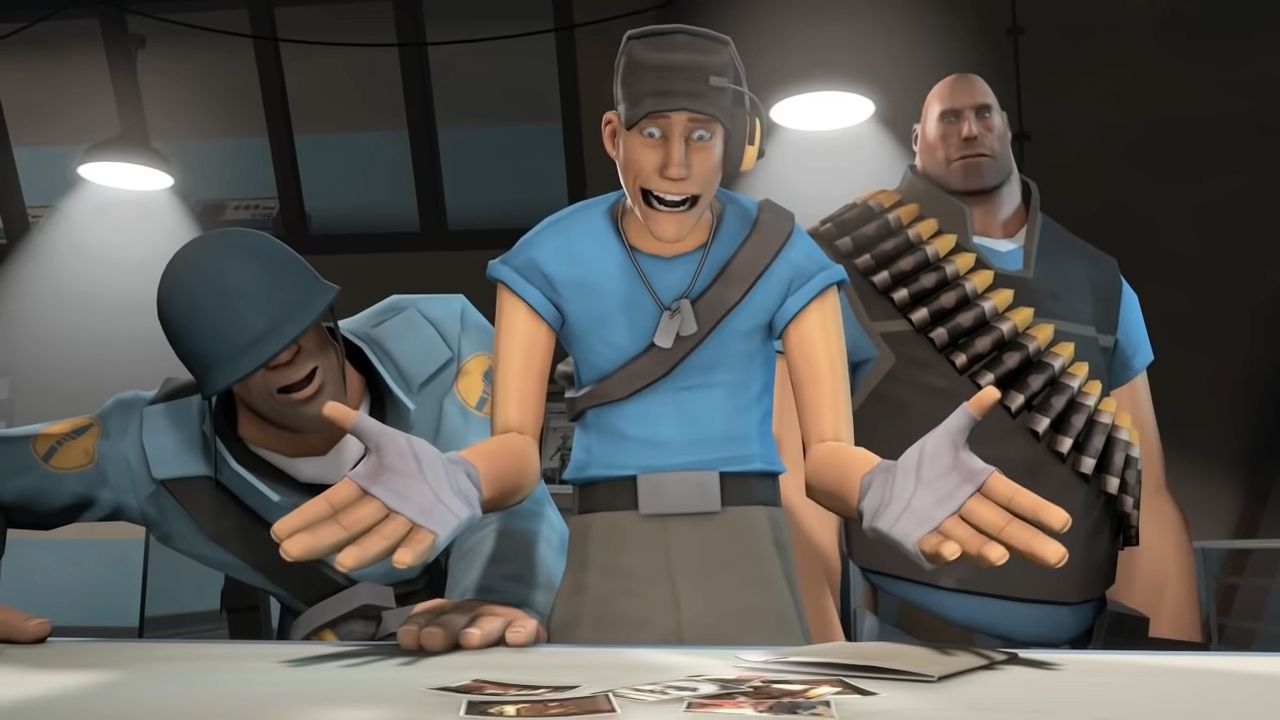
Collective Shout, an Australian anti-pornography group, has claimed credit for Steam’s recent removal of a large number of sexually explicit games and new, stricter moderation guidelines regarding such material. In a statement to PC Gamer, Valve cited pressure from payment processors like credit card companies and Paypal for the move, while Collective Shout touted its open letter and consumer campaign targeting payment processors for inciting that pressure.
This was first reported by Waypoint, which has since pulled its two articles on the subject without explanation. The articles’ author, Ana Valens, has alleged that Vice’s parent company, Savage Ventures, removed the articles due to concerns over their controversial content rather than any error in the reporting.
Collective Shout began in 2009, co-founded by self-described “pro-life feminist” Melinda Tankard Reist. Collective Shout describes itself as “A grassroots campaigning movement against the objectification of women and sexualization of girls in media, advertising, and popular culture”. To date, it has been involved in:
- Unsuccessful efforts to ban Snoop Dogg and Eminem from Australia.
- A successful 2015 campaign to prevent Tyler the Creator from touring Australia.
- A successful 2015 campaign to pressure Target and Kmart to stop selling Grand Theft Auto 5 in Australia.
- A petition to ban the game No Mercy from sale, which ultimately led to the developers pulling it from Steam.
- An unsuccessful petition to ban Detroit: Become Human from sale in Australia.
On July 7, Collective Shout shared an update to its No Mercy Change.org campaign calling on supports to email payment processors (including PayPal, MasterCard, Visa, and Discover) to demand that they “cut ties with Steam and itch.io” over “hundreds of r*pe, incest, and child-abuse games.” This was followed by an open letter from Collective Shout asking that they “immediately cease processing payments on Steam and itch.io and any other platforms hosting similar games.”
Collective Shout later wrote that 1,067 individuals called and emailed payment processors as part of this campaign. It’s unclear when Valve updated its TOS for developers, but the mass deletion of sex games appears to have begun on July 15 judging by SteamDB’s recorded package changes. On the 18th, Valve confirmed to us that this was in response to pressure from payment processors.
All these porn sick brain rotted pedo gamer fetishists so desperate to get their hands on rape-my-little-sister incest games they’re now exchanging clues on how to find them so that they don’t all die overnightJuly 18, 2025
Collective Shout claimed victory that same day. “Since we launched our campaign calling on Payment Processors to stop facilitating payments for rape, incest, sexual torture and child-abuse themed games on Steam, they have added a new rule to their policies + removed hundreds of these games,” the group wrote on Twitter.
In follow-up tweets, Collective Shout wrote that it was experiencing harassment from “misogynistic gamers” over the campaign, and that there remain 82 games “tagged with rape and incest” that the group will continue campaigning to have taken down—this is of a claimed 500 games that the group took issue with.
Those numbers do not add up, though. Counting up all “Removed” and “Retired” games on SteamDB since the 15th, I got 456 hits, but that includes double counts for most of the offending games (many of which were both “Removed” and “Retired”), DLC and demos for those games (also given the double-r treatment), and a number of unrelated games that were taken off Steam during this time.
“All these porn sick brain rotted pedo gamer fetishists so desperate to get their hands on rape-my-little-sister incest games they’re now exchanging clues on how to find them so that they don’t all die overnight,” Collective Shout co-founder Melinda Tankard Reist tweeted on July 18th. Later that day, she shared a long Tweet thread further claiming victory with Steam’s decision.
The two retracted articles from Waypoint appear to be the first among the games press to point out the connection between Collective Shout and the recent changes on Steam, a connection which is public knowledge—by Collective Shout’s own statements—and not an allegation made by Waypoint against the group.
The articles remain available on the Wayback Machine, and I have reached out for comment from Savage Ventures regarding their deletion. Ana Valens and two other Waypoint writers, Shaun Cichacki and Matt Vatankhah, have all resigned from the site. “I stand by all of my retracted articles, especially the Collective Shout ones,” Valens said in a statement to PC Gamer.
“I fact-checked every article’s content rigorously. I believe that Collective Shout and its related organizations deserve further journalistic investigation by other reporters in the games industry. I hope more writers look into the clear and obvious signs of payment processor-based censorship that are occurring toward Steam, and have occurred against Pixiv, itch.io, DLSite, Gumroad, Patreon, and other sites.”
This is likely far from over: Collective Shout is no doubt feeling emboldened by a second public success in its efforts to police content on Steam specifically. The games I saw removed from Steam in this wave all featured risible content and suspect quality, but Collective Shout has a broader anti-pornography, even anti-expression remit that it has demonstrated in the past.


